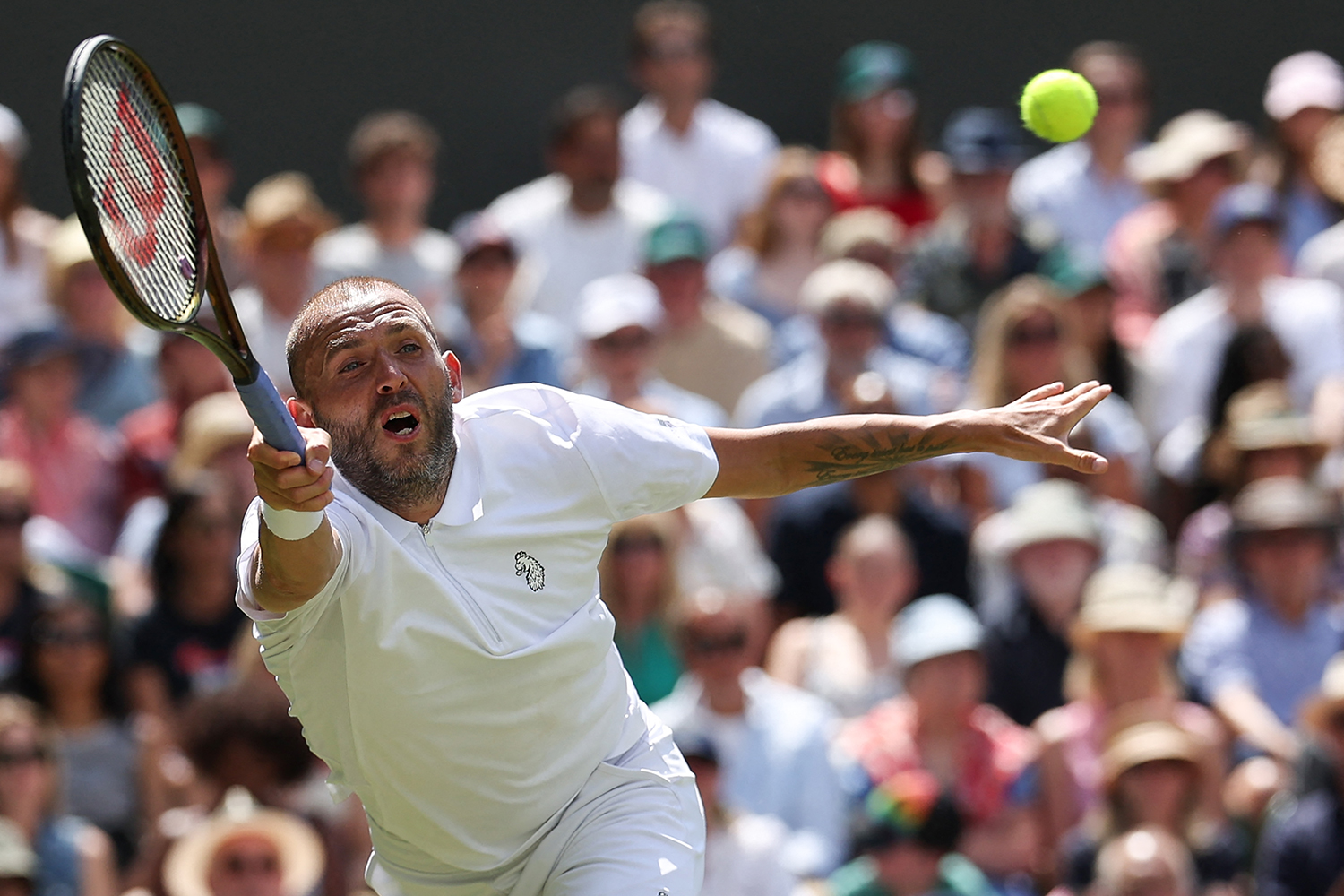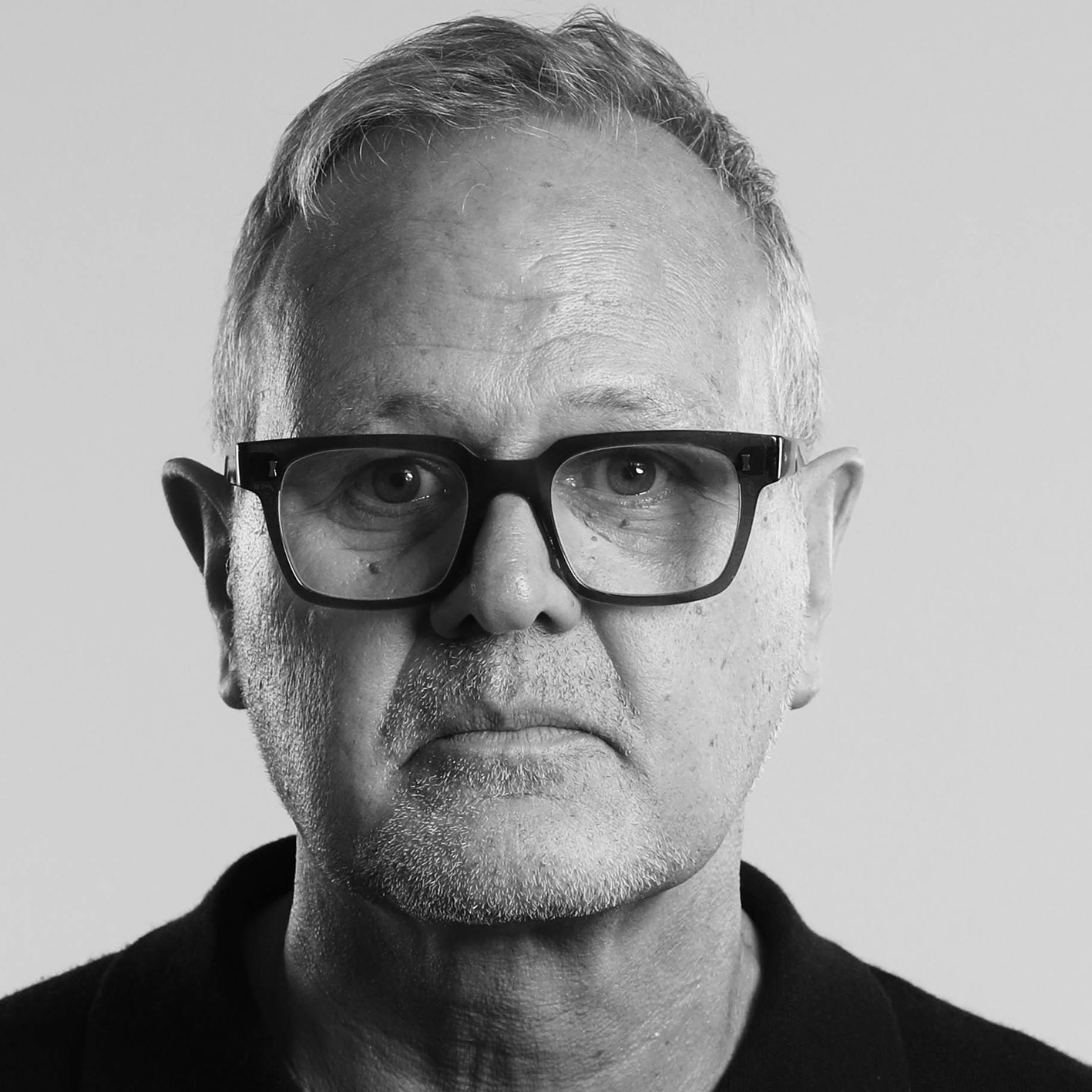The path for the typical Wimbledon hopeful is to go from playing people they should beat to playing those they could beat and finally on to those they probably won't.
Individual sport of this calibre is about two levels: the actual and the dream. Thus 35-year-old Briton Dan Evans had a theoretical chance against the 24-time Grand Slam winner Novak Djokovic on Centre Court, until, that is, they started playing tennis.
Evans, or ‘Evvo’ to his friends, set about Djokovic with admirable tenacity. The first set was a tussle, a showcase for spirited underdoggery on one side of the net and world-class talent on the other. Playing this way, Evans would have beaten a lot of players in the gentlemen’s singles draw – but not Djokovic, who has won the title here seven times.
Evans called it “a hell of an occasion.” It was certainly an occasion with hell in it: a straight-sets beating. “I felt like I was always on the back foot,” he said. If players who have felt this way against Djokovic organised a get-together they would need to hire the Albert Hall. There is no shame in it, and not much gain either, beyond the generous fee for losing (£99,000 for going out in the second-round).
Wimbledon fortnight is split in two.
In week one: plucky Brits, not so plucky Brits, wildcards, giantkilling, shock exits, celebrity spotting, queues and usually money rows.
In week two: serious tennis, the best against the best, minus the shock first week exits, of which there have been an unusually high number this year.
The ‘levels’ say what should happen. The human element adds enough unpredictability to keep it interesting. Britain’s Emma Raducanu, ranked 40, shouldn’t beat the world No 1 Aryna Sabalenka in the third-round, but nobody would bet heavily against it.
Raducanu’s 2021 US Open win is a permanent stamp of quality. Nobody could take that stunning accomplishment away from her. And she has returned this week to being a tennis player rather than an injury bulletin or a brand. The Sabalenka-Raducanu tie is the most enticing match-up of the championships so far. By Monday the whole show will ease into that phase where also-rans are thrown aside.
In the very first game of their match, Djokovic wounded Evans with an exquisite drop shot. You could see Evans thinking: ‘Oh, here we go.’ But he clung on. He was a first-round loser in each of his previous three Wimbledon appearances and has never made it beyond round three in nine attempts.
Newsletters
Choose the newsletters you want to receive
View more
For information about how The Observer protects your data, read our Privacy Policy
He had more in common with Djokovic than he knew. Now 38, Djokovic has had his own hill to climb, or re-climb: the one occupied by Carlos Alcaraz and Jannik Sinner. Of the three amigos – Roger Federer, Rafa Nadal and Djokovic – Serbia’s greatest athlete is the last one standing. To gain the 25th Grand Slam title he covets, Djokovic will have to upend the new order. He is eminently capable of doing so here.
Evans’s ambitions are more modest. He thinks he still has “a decent shot in the tier below the top, top guys.”
After a recent win at Eastbourne, he recalled a friend telling him: ‘If you’re ready and the door opens, you’ll walk right through it.”
True to that instruction, he strode through the door of the Centre Court dressing room, smack bang into Djokovic’s talent. It was still worth pushing it open, for what Evans assumed will be his final taste of Centre Court.
As a wise man said, elite sport is not about separating the good from the bad, but rather the good from the better.

